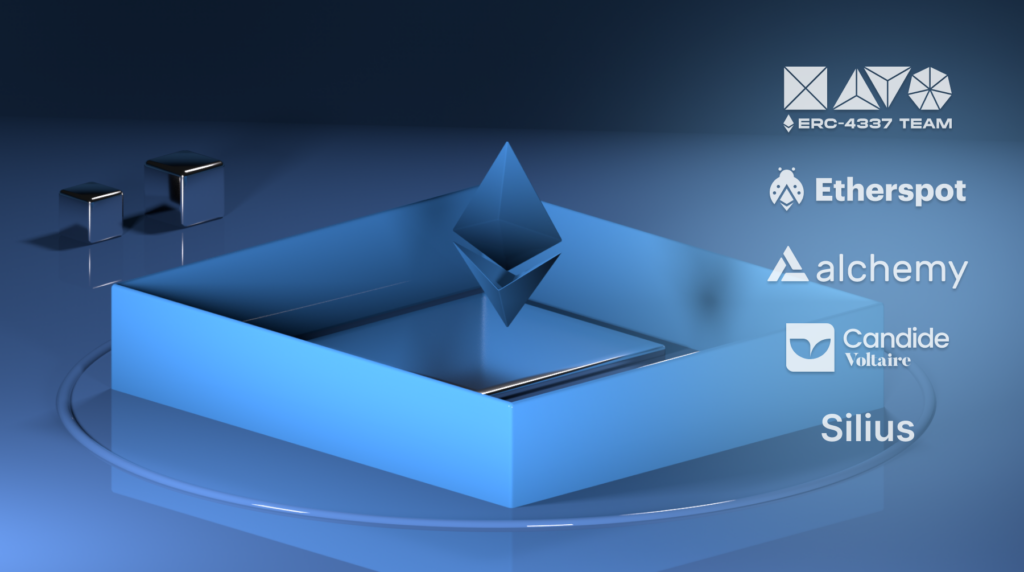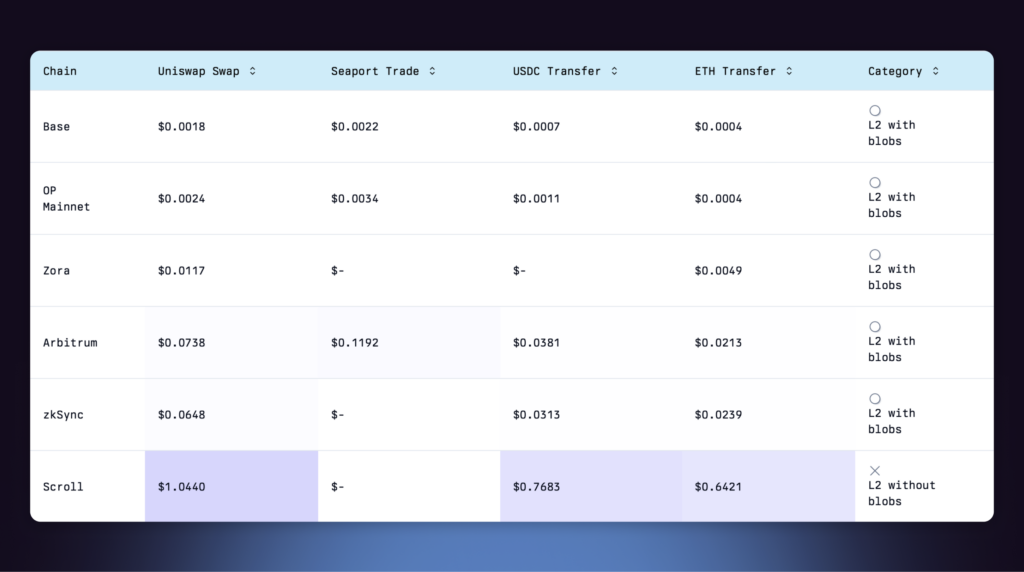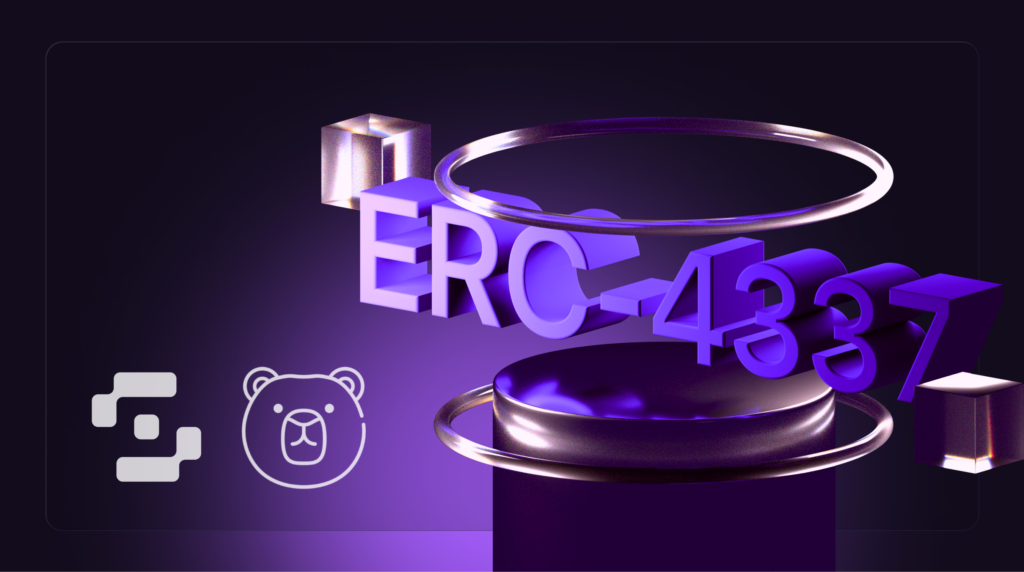Please fasten your belts!
ERC-4337 Shared Mempool launches on Ethereum

Etherspot announced the launch of shared mempools in a collaborative effort by leading blockchain technology innovators (the ERC-4337 team, Alchemy, Candide, and Silius).
This initiative addresses the vulnerabilities associated with centralized infrastructures that have historically led to transaction failures.
Shared mempools allow for UserOps received by one bundler to be distributed among and verified by all connected peers, thereby decentralizing the bundling process and significantly reducing the chance of transaction failures.
The introduction of shared mempools is a response to the challenges posed by account abstraction’s reliance on centralized infrastructure, which can introduce the following risks:
- system failures
- censorship
- compromised transaction integrity
To connect to a shared mempool, bundlers must identify the mempool by its unique ID and include this in their metadata.
Etherspot’s Skandha bundler, Candide’s Voltaire bundler, and Silius’ bundler are already connected to the shared mempool.
👉Find more info here: https://bit.ly/3IClLSn
Ethereum’s Dencun upgrade goes live to lower fees and improve scalability
The Ethereum network has successfully implemented the Dencun upgrade, its most significant hard fork since the Merge, on March 13 at 1:55 pm UTC.
The upgrade, which combines the Cancun upgrade of Ethereum’s execution layer and the Deneb upgrade on its consensus layer, is expected to reduce transaction fees on layer-2 networks and enhance the overall scalability of the Ethereum ecosystem.
One of the most notable features of the Dencun upgrade is the introduction of data blobs via EIP-4844, also known as proto-danksharding.
This improvement aims to reduce layer-2 transaction fees by enhancing data availability, making Ethereum a more scalable settlement layer.
However, the promised fee reductions will not immediately affect Ethereum mainnet users, who must currently sacrifice some decentralization and security by transacting on layer-2 solutions to benefit from the changes.
Despite high gas fees on the Ethereum mainnet, platforms like GasFees.io, developed by Kofi, reveal significant cost reductions on layer-2 networks post-upgrade. Since EIP-4884 launched, the community witnessed a 99.8% drop in costs on Optimism chains and a 50%reduction in costs on zkSync.

Vitalik Buterin: A ‘simple’ hard fork could protect Ethereum from quantum computing attacks
Vitalik Buterin has stated that the Ethereum network is already well-positioned to mitigate the impact of a massive quantum computing attack.
In a recent post on Ethereum Research, Buterin discussed a hypothetical “quantum emergency” scenario and outlined a plan to protect the network and its users’ funds.
According to Buterin, if a quantum computing attack were to occur, Ethereum developers would need to implement a hard fork (roll back the network to a point before the “large-scale theft” began).
The hard fork would disable all traditional transactions and introduce a new transaction type, which is part of the EIP-7560.
This new transaction type would leverage Winternitz signatures and zero-knowledge proof technologies called “STARKs” to ensure that existing wallets are switched to new validation code.
The validation code utilizes ERC-4337 account abstraction to prevent private keys from being displayed while signing transactions.
Safe and BundleBear analyzed retention rates of ERC-4337 smart accounts
Safe, a leading provider of secure smart contract accounts, has collaborated with BundleBear, a prominent onchain analytics firm, to investigate the retention rates of ERC-4337 smart accounts.
The core goal was to provide valuable insights into user behavior and application interaction.
The deep dive into onchain analytics focused on understanding how “sticky” these smart accounts are, by analyzing active users and their onchain activities.
The study offered a comprehensive look at how smart accounts are utilized across different applications.
ERC-4337 smart accounts have gained significant traction in the decentralized space. Now developers and stakeholders have actionable insights to optimize user experience and drive long-term engagement.

Account Abstraction wallets with AWS and Alchemy: Part 2
In the second part of this series on building AA wallets, Amazon delved into the technical core concepts of AA and explored a solution built on AWS using the Alchemy Account Kit SDK and other Alchemy services.
The post also provides a deep dive into the components of Account Kit, namely the AA-SDK, Bundler, and the Gas Manager API.
The solution architecture consists of several AWS services: Amazon API Gateway, Amazon Cognito, AWS Step Functions, AWS Lambda, AWS KMS, Amazon DynamoDB, and Amazon Managed Blockchain Ethereum node.
The Alchemy AA-SDK, a type-safe and performant TypeScript library, simplifies the process of integrating and deploying smart accounts, sending user operations, and sponsoring gas.
The post walks through the steps required to configure the SDK and submit a UserOperation:
- creating a provider
- integrating a smart account implementation
- sending and batching UserOperations
The Gas Manager, Alchemy’s implementation of a paymaster, allows entities to sponsor gas fees for others.
Amazon explains how to access Gas Manager, create a gas policy, and link it to the AA-SDK provider.
Lastly, they introduce Alchemy’s Bundler implementation, called Rundler, which collects and submits UserOperations to the blockchain.
Rundler is designed to achieve high performance and reliability, with features such as ERC-4337 specification compliance, modular architecture, and mempool management.
🐞Eager to enhance your dApp’s user experience and onboard more users?
Elevate your project’s potential with Etherspot — leverage AA Prime SDK, ERC4337 Skandha Bundler, and Paymaster Service. Etherspot supports 21+ EVM-compatible rollups and L1/L2 chains.
Start exploring Account Abstraction with Etherspot!
- Learn more about account abstraction here.
- Head to our docs and read all about the Etherspot SDK.
- Skandha - a developer-friendly Typescript ERC4337 Bundler.
- Explore our TransactionKit, a React library for fast & simple Web3 development.
- For a plug & play integration, review the BUIDLer react component.
- Follow us on Twitter and join our Discord.
Is your dApp ready for Account Abstraction? Check it out here: https://eip1271.io/
Subscribe to Etherspot’s Everything About Account Abstraction Newsletter!
Get In Touch:
Website | Twitter | Discord | Github | Telegram
Powered by Etherspot
TransactionKit | BUIDLer React Component | Pillar Wallet | AirdropMe

